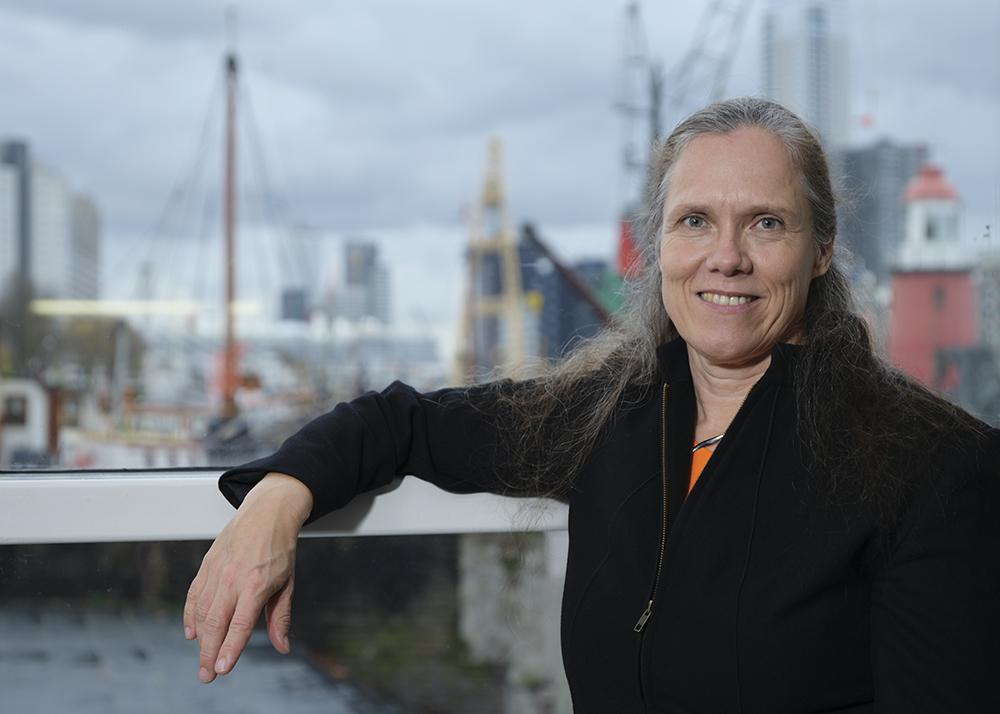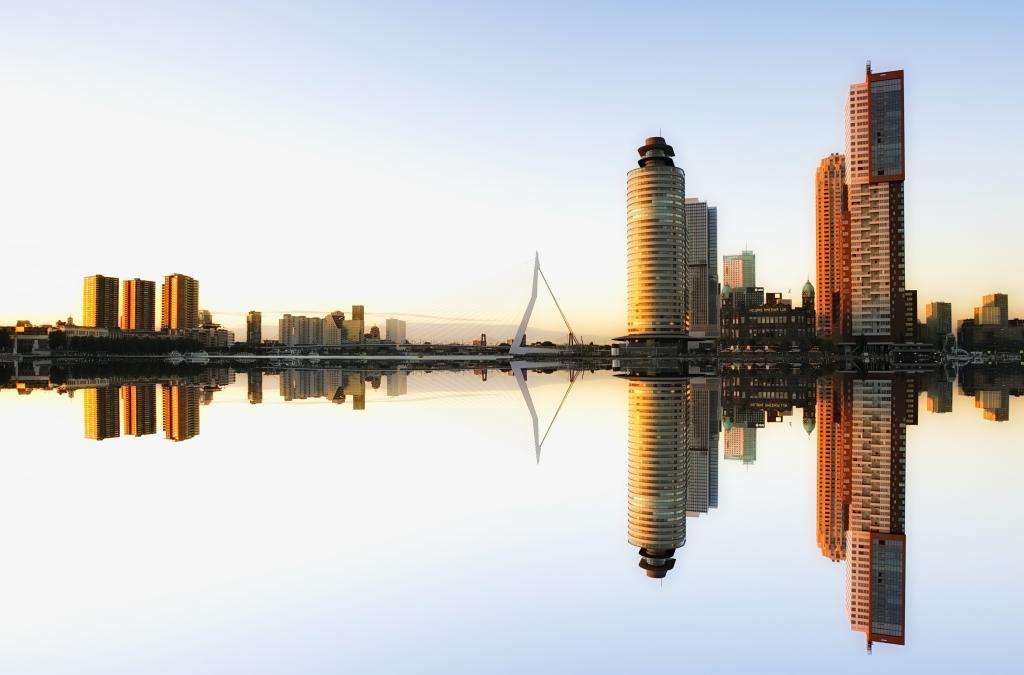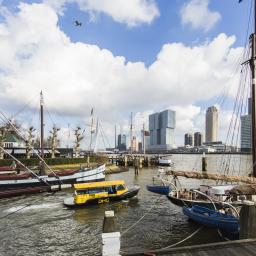Water-rich cities, such as port cities, often have a rich histo ry. They also have a dynamic future ahead of them, because they are faced with climate change, migration, urbanisation and a whole host of other significant developments. Generally speaking, port cities have a long tradition of adapting to new circumstances, which is often reflected in their heritage. How can we learn from their past to solve problems in the future?
ry. They also have a dynamic future ahead of them, because they are faced with climate change, migration, urbanisation and a whole host of other significant developments. Generally speaking, port cities have a long tradition of adapting to new circumstances, which is often reflected in their heritage. How can we learn from their past to solve problems in the future?

Carola Hein, Professor of History of Architecture and Urban Planning at TU Delft, has been shining a light on this fascinating area of research for many years. This month, in her capacity as initiator of the Leiden-Delft-Erasmus Port City Futures programme, Hein was awarded the Unesco Chair in Water, Ports and Historic Cities.
‘We can’t understand the present if we don’t understanding the past. So, I am very honoured to have been awarded this Unesco Chair,’ says Hein. ‘In my work, I try to link ideas and developments from the past to the present day. A great deal of the world’s heritage has something to do with water. The historic structures, ports and port cities are a valuable source of knowledge about the past, but they also offer solutions for the future. They contribute towards sustainable developments.’
‘The appointment is also recognition of the way we work within the Leiden-Delft-Erasmus partnership, bringing together disciplines to work on the themes of port cities on the one hand and on water and heritage on the other. This multidisciplinary approach is key, because issues of identity, cultural heritage, sustainability and economy and, above all, quality of life can only be solved by a diverse team of researchers.’
International knowledge exchange
This Chair will contribute to a greater awareness of this interconnectedness. Methods will also be developed to delve into historical sources and to collect large quantities of data, from which information will be extracted in a targeted manner. This will make it possible to establish links between water and heritage, and between ports and cities. The first step is to create a database with information on existing water- and port-related World Heritage sites. This information will be available for use in open-access publications, education and public information. Additionally, the Chair will be the epicentre for teaching – from Bachelor’s and Master’s degree programmes to summer schools and online classes.
Professor Wim van den Doel, Dean of Leiden-Delft-Erasmus Universities, adds:
‘The LDE universities are delighted that Professor Carola Hein has been awarded the Unesco Chair in Water, Ports and Historic Cities. It is recognition for her work to underscore the significance of ports as an urban and socio-cultural phenomenon, and to make the connection between the fields of water and heritage. Besides the cultural and historical aspects of port cities, Unesco also emphasises the importance of sustainable development, including issues such as rising sea levels and other climate-related factors, and particularly, how people will live and work in the future in large delta regions all over the world.’

Multidisciplinary
The Chair stimulates multidisciplinary cooperation between researchers from several academic institutions. This is in keeping with the Leiden-Delft-Erasmus philosophy: working together for science and society. Professor Hein heads the Leiden-Delft-Erasmus PortCityFutures programme.
Leiden-Delft-Erasmus PortCityFutures
The Leiden-Delft-Erasmus PortCityFutures programme employs interdisciplinary methods and long-term perspectives to understand and design political, economic, social and cultural dimensions of spatial use in port city regions. The programme explores how the flows of goods and people generated by port activities intersect with the dynamics of the natural territory, hydraulic engineering, spatial planning, architecture and heritage. It examines the spatial impact of competing interests among port-related and urban spatial development needs and timelines. It also explores creative solutions to and design measures for problems and their consequences for the use of this limited space so that the port, city and region can evolve together. The research on port cities can provide generally important inspirations for water cities around the world.
Port cities as hubs of diversity and inclusivity: The case of Rotterdam
PortCityFutures also recently launched the MOOC ‘(Re)Imagining Port Cities: Understanding Space, Society and Culture’



